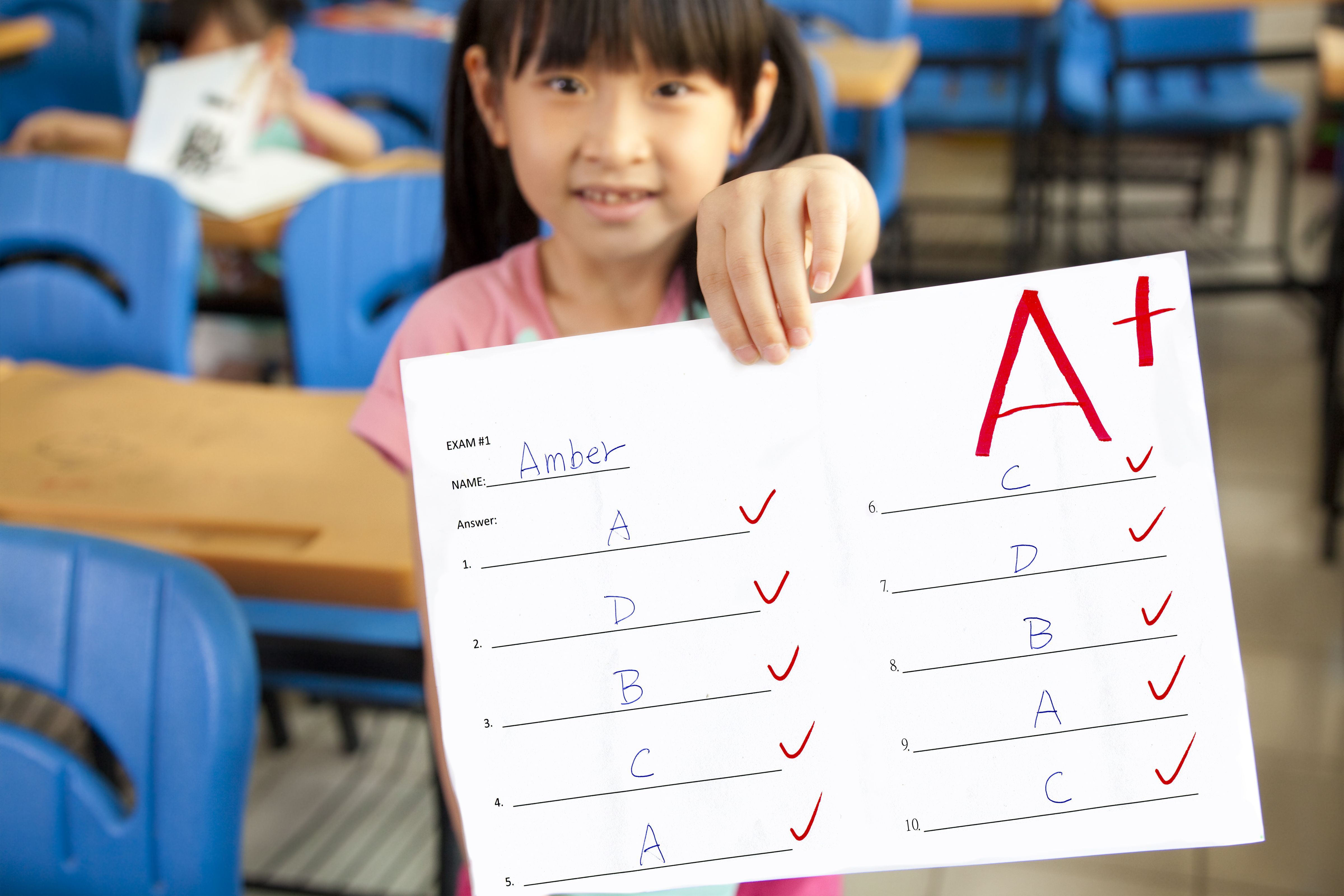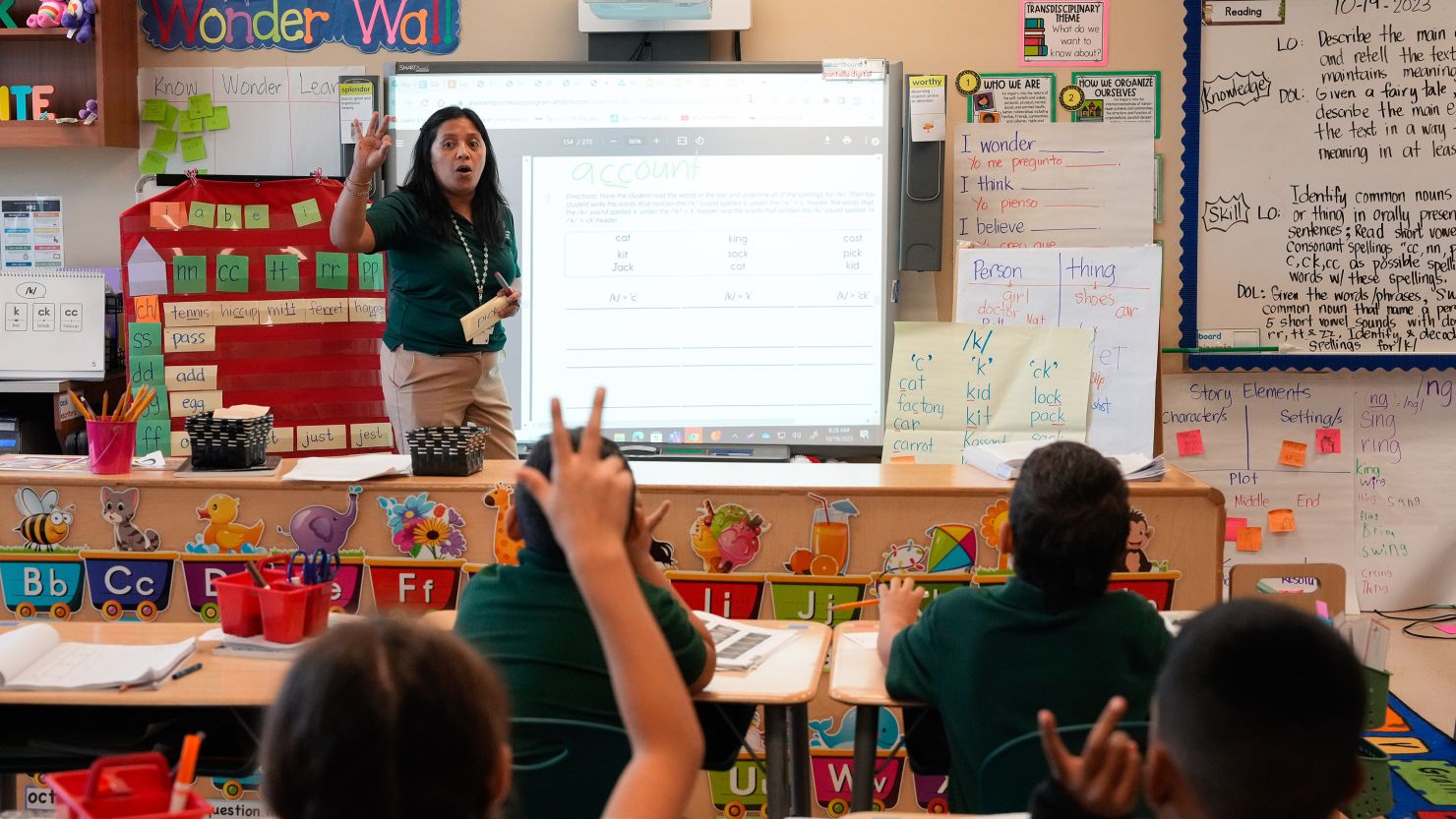How Grade School Peoria emphasizes holistic child development
Wiki Article
Discovering the Conveniences of Kindergarten Programs: A Comprehensive Guide to Early Education And Learning
Kindergarten programs play a critical role in shaping a child's very early academic experience. They supply an organized atmosphere where young learners can establish crucial social abilities, psychological durability, and cognitive abilities. These fundamental skills are necessary as kids relocate right into even more official education. Comprehending exactly how these programs contribute to a child's growth reveals much regarding their long-term academic trajectory. What certain advantages do these early experiences provide, and just how do they affect a youngster's future?The Value of Social Abilities Growth
While several facets of early education and learning focus on academic skills, the growth of social abilities in preschool programs is equally essential. Social abilities include the ability to interact properly, collaborate with peers, and browse social scenarios, all of which are important for a kid's general growth. In kindergarten, children find out to share, take turns, and fix disputes, cultivating a sense of neighborhood and belonging. These experiences enable young learners to form friendships and establish compassion, preparing for favorable partnerships in the future.Educators play a crucial duty in facilitating social skill growth through structured activities and led communications. Through team tasks and play, children practice necessary abilities such as paying attention, discussing, and comprehending diverse point of views. These communications assist kids construct confidence and self-confidence, important components for their individual and scholastic trips. Overall, supporting social abilities in kindergarten enhances kids's experiences and prepares them for the intricacies of social life beyond college.

Structure Psychological Durability in Youthful Learners
Building emotional durability in young students is essential to their total well-being and success in different aspects of life. Kindergarten programs give a structured environment where children can find out to browse their emotions efficiently. With guided activities and communications, educators assist youngsters determine and share their sensations, promoting a feeling of self-awareness.Additionally, these programs frequently include techniques for dealing with obstacles, such as analytical activities and role-playing scenarios that prepare youngsters for real-life situations. By encouraging collaboration and compassion, young learners develop strong social connections, which are vital for psychological assistance.
Educators play a critical function in modeling strength by demonstrating how to manage stress and anxiety and difficulty. As youngsters observe these actions, they internalize useful coping mechanisms, equipping them to handle future psychological problems with greater ease. In general, supporting emotional durability in very early education and learning lays a strong structure for lifelong psychological health and versatility.
Enhancing Cognitive Abilities With Structured Knowing
As youngsters engage in organized understanding experiences within kindergarten programs, their cognitive capabilities are substantially boosted. These programs present age-appropriate activities that promote critical reasoning and analytic abilities. For example, hands-on activities such as problems and structure blocks advertise spatial recognition and sensible thinking.Interactive narration and group conversations foster language development, broadening vocabulary and understanding. Via structured routines, youngsters discover to follow directions, improving their executive working skills, which are crucial for future academic success.
Social interactions within these programs also play a considerable duty, as kids learn to work together and communicate successfully, further boosting cognitive development.
Additionally, integrating play-based learning enables youngsters to check out principles in a fun and appealing way, strengthening their understanding and retention of knowledge. Overall, organized knowing in preschool lays a strong foundation for cognitive development, preparing youngsters for the challenges of greater education and learning.
Fostering a Love for Lifelong Discovering

Furthermore, positive communications with teachers and peers add to an environment where discovering is watched as pleasurable and gratifying. This encouraging ambience assists instill intrinsic motivation and reinforces the concept that education and learning is a continuous trip instead than a destination.
As youngsters uncover their passions and staminas, they are a lot more likely to pursue knowledge past the classroom, laying the structure for a long-lasting commitment to understanding. Inevitably, preschool programs play a vital function fit passionate students who embrace educational opportunities throughout their lives.
Preparing for Future Academic Success
While foundational abilities are critical for early students, kindergarten programs additionally play an important duty in preparing kids for future scholastic success. These you can try these out programs introduce essential principles such as literacy and numeracy, ensuring that children establish the cognitive capacities required for advanced discovering. By taking part in structured activities, pupils improve important thinking and analytic skills, laying a solid foundation for their instructional trip.In addition, preschool cultivates social-emotional growth, enabling youngsters to browse collective jobs and build partnerships with peers. This collective setting imparts a sense of belonging and boosts self-confidence, which is essential for scholastic perseverance.
Additionally, exposure to varied understanding experiences in kindergarten grows adaptability, gearing up youngsters to tackle numerous topics and obstacles in succeeding qualities (Private School). Eventually, by providing a well-rounded early education, kindergarten programs guarantee that children are not just prepared for first grade but additionally prepared for continued academic success throughout their instructional occupations
Regularly Asked Concerns
What Age Is Perfect for Beginning Preschool Programs?
The suitable age for starting preschool programs is usually between five and six years of ages. This age enables children to create important social, emotional, and cognitive skills, preparing them for future scholastic success and individual growth.How Do I Choose the Right Kindergarten Program for My Youngster?
To select the ideal kindergarten program, one need to take into consideration aspects such as educational program, educator certifications, course size, location, and the college's ideology. Observing the environment and gathering comments from other parents can also be valuable.Exist Any Type Of State Demands for Preschool Enrollment?
Lots of states have certain requirements for kindergarten registration, including age constraints and paperwork such as copyright or proof of residency (Grade School Peoria). Moms and dads need to consult their local education and learning authority to comprehend the exact standards in their areaWhat Should Moms and dads Expect During a Regular Preschool Day?
Throughout a normal preschool day, parents can expect structured tasks including circle time, creative play, fundamental scholastic lessons, treat breaks, and social interaction, all created to foster learning and advancement in a nurturing setting.How Can Parents Assistance Learning in the house along with Kindergarten?
Moms and dads can support learning at home by participating in normal analysis, including academic video games, developing a regular routine, motivating curiosity via concerns, and producing a favorable, nurturing atmosphere that cultivates expedition and creative thinking.Kindergarten programs play a crucial function in forming a child's very early Grade School Peoria educational experience. Kindergarten programs supply an organized environment where kids can find out to navigate click for info their feelings efficiently. As kids involve in structured understanding experiences within kindergarten programs, their cognitive capabilities are considerably improved. By appealing kids in varied tasks-- such as narration, hands-on experiments, and collective jobs-- kindergarten programs cultivate interest and exploration. While fundamental skills are crucial for early students, kindergarten programs additionally play an essential function in preparing children for future scholastic success.
Report this wiki page